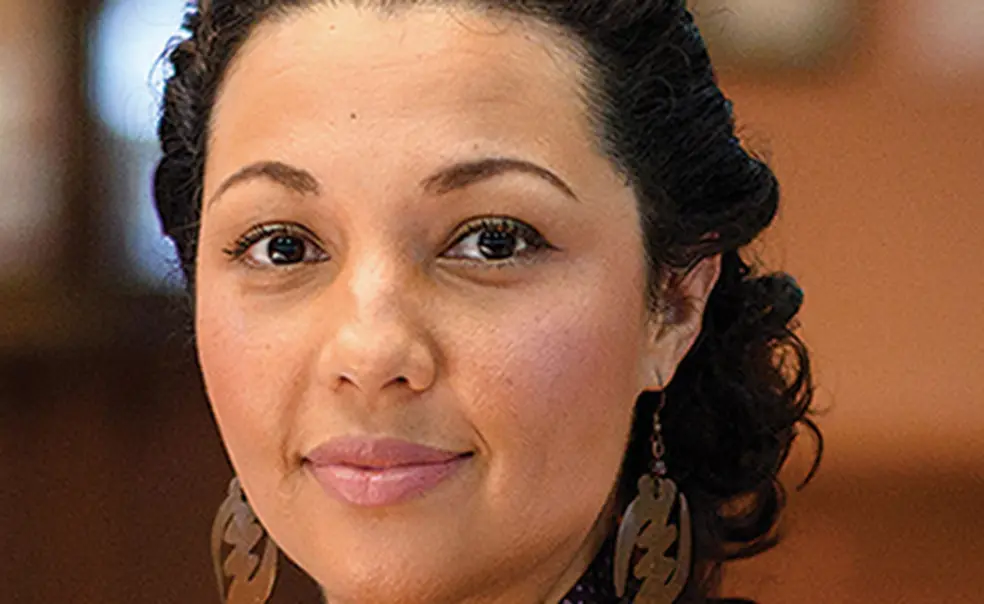Together, Princeton Professors ‘Humanize the Data On Policing’
Survivors’ stories of police violence “give them voice”
Like many across the nation, anthropology professor Laurence Ralph and American studies professor Aisha M. Beliso-De Jesús have been gripped by the recent protests over the killing of George Floyd. “The events of the past few days represent the tensions with the police that are always bubbling beneath the surface of American society,” Ralph wrote from his home on June 2. For him, answers to those tensions “require no less than a radical transformation in how we understand the contexts in which police deploy force and how police violence impacts communities of color in the United States.”
Ralph and Beliso-De Jesús both study policing, but from different angles. Ralph has written about gang and police violence in Chicago, while Beliso-De Jesús studies the criminalization and policing of African diaspora religions like Santeria. The two — who co-teach an introductory course called “Policing and Militarization Today” — realized it would be helpful if scholars doing police research had a place to “think together,” as Beliso-De Jesús puts it. The class focuses on policing on a transnational scale, but also examines immigration police and border patrols, important areas in need of attention right now, according to Beliso-De Jesús.
Since 2018 the pair have run the Center on Transnational Policing (CTP), a research hub for scholars concerned with race, policing, social justice, and related issues. It offers students the opportunity to collaborate with professors at different universities, and helps find ways academic research can contribute to public policy. “Our philosophy is rooted in a humanizing approach to the social scientific study of policing and law enforcement. We support research and inquiry in the spirit of changing the suffering and social inequality experienced by marginalized people,” says Beliso-De Jesús.
CTP efforts include an animation project that illustrates ethnographic interviews with teenagers in Chicago, as well as data and other scholarship on police violence, created with the help of visual artists and composers. The films will be screened publicly and serve as educational material for classes at Princeton and in several public-school systems across the U.S. The idea for the project came from research Ralph conducted for The Torture Letters, interviewing survivors of police torture. Many wanted to convey their experiences for the “next generation of people who might fall victim to police violence,” he says. “This is part of my effort to address that.”
Another project looks at use of police force in New Orleans, which until recently was the city with the highest per capita rate of incarceration in the world. In 2012, the city entered into a consent decree that subjected its police department to monitoring by the federal government, with the aim of rehabilitation. The CTP project is studying the impact of the consent decree and use of police force through methods such as surveys, focus groups, interviews with residents and law-enforcement officers, and “looking at what reforms are working and which ones don’t seem to be working,” Ralph says.
Students and professors from Princeton and the University of Tokyo will also examine security at the now-postponed Tokyo Olympics and how COVID-19 will impact security and policing.
The center’s ultimate goal is to “humanize the data on policing, because a lot of it is just statistics and numbers about how many people are killed by the police,” says Ralph. Putting a human face to victims, and to survivors’ stories of police violence, he adds, “gives them voice.”












No responses yet